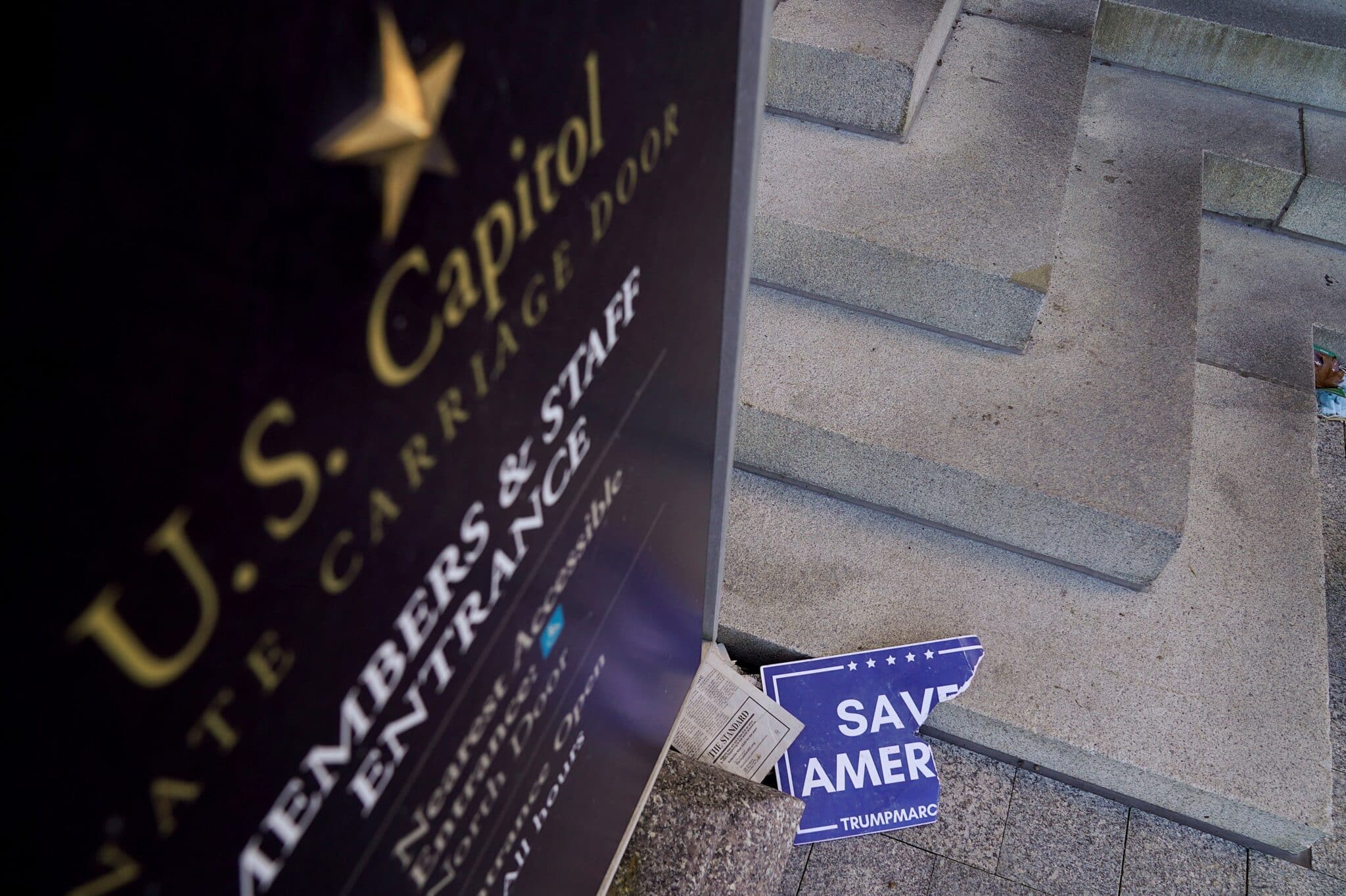Over the past several years, as our country has grown increasingly divided—especially in light of the riots inside and outside the US Capitol building last week. Time and again I’ve returned to this passage from Isaiah: Your people shall rebuild the ancient ruins; the foundations from ages past you shall raise up; “Repairer of the breach,” they shall call you, “Restorer of ruined dwellings” (58:12).
It’s becoming more and more clear to me that one of the essential tasks of our time is to heal our deep polarization and mutual derision and suspicion. Obviously, we don’t have to erase our differences or think in lockstep with each other—that’s uniformity, not unity. But if we can’t find some sort of common ground, some shared values or goals, the chasm dividing our nation will continue to widen. We will, at best, make no progress in addressing environmental problems, racial justice, education, or any other pressing challenges. At worst—and I never imagined I would find myself writing this—we will have another civil war or even become an ungovernable, failed state. The stakes are that high.
How, then, might we begin to repair the breach and to restore the dwellings that our divisiveness has so damaged? How can we make our cracked foundations whole?
Sadly, the Church also struggles with divisions between liberal and conservative, ordained and laity. Yet at the same time, it has a two-millennia history of trying to be the body of Christ, and it offers many resources. We can take steps, deeply rooted in Catholic life and tradition, that could help guide our nation along the journey toward healing and unity.
Five Steps for Moving Forward
The first and most important step is for all of us to do our own inner work. While our conflict and polarization may be fed and amplified by our political leaders, they actually stem from inside each one of us: from the tendencies toward scapegoating and demonization that we all harbor in our own hearts.
Healing the divisions between us by healing the divisions within us is, first and foremost, a spiritual process. It means shining the light of prayer on our interior life and allowing God to reveal and heal our sins, fears, and shadows so that we don’t simply project them onto the “other side.”
It is a process that entails seeking forgiveness from God and others and offering it to those who have hurt us—even offering it to ourselves. It may also require, in some cases, professional therapy or at least no-nonsense counsel from trusted friends and loved ones.
Second, as our tradition teaches and Pope Francis often reminds us, we need to keep internalizing the universal, bedrock truth that everything and everyone is interconnected. We are a single species, and we share a common fate. As long as we keep dividing the world into winners and losers, we will all be losers.
Communion-in-diversity is one of the ground rules of reality, from the relationships within the Trinity to the way the universe has unfolded over time, in all its marvelous complexity. Like the law of gravity, we ignore this law at our great peril.
Speaking of the story of the universe, a third practice is to always take the larger, longer view. We have to keep pulling back the lens. We Americans are all part of a common land and a common world. We’re part of an unimaginably large universe and a vast arc of history, which will always transcend the heat of any particular cultural moment.
We have to stop thinking and acting so small. Those who do truly great things often—and paradoxically—have a deep humility that comes from seeing themselves against the backdrop of big, big history—God’s time, not ours, and God’s creation, not ours.
Fourth, and after the COVID-19 restrictions finally ease up, we have to find ways to get in the same physical space with those whose opinions and experiences aren’t like ours. In an age when most of us self-sort into echo chambers of like-minded people, two of the best places to do this are also two things held up by Catholic tradition: family life and parish life. In both of these places, we are likely to encounter people with whom we vehemently disagree—and whom we are called to love. Regardless of our divergent opinions, we can still break bread together or offer the sign of peace at Mass.
Finally, we can seek out practical projects and service opportunities that transcend ideological differences. Parish ministries are genius in this regard, because when we ladle soup together, knit a prayer shawl, bring Communion to a shut-in, or hammer on a Habitat for Humanity house, we are creating a foundation of common ground based on compassion and kindness toward our neighbors.
I imagine that Jesus would rather we look past our fractiousness and our fights in favor of feeding the hungry, giving water to the thirsty, clothing the naked, and visiting the sick and imprisoned.
Let’s Get to Work
These five things—doing our inner work, remembering our interconnection, taking a large view, keeping company with others whose views are different, and taking up a common cause in practical projects and service—don’t guarantee that we will be able to repair the breach of our deeply fractured nation. We are a stubborn people, and each one of us is sinful and fallible. But I believe—I choose and keep choosing to believe—that God wants us to be one and will help us on that path.
That’s the right victory: not of my side over yours, but of all of us, together, over the forces that would pull us apart. That is, as a dear friend and colleague of mine always reminds me, the work of love. That’s a foundation we can build on.


